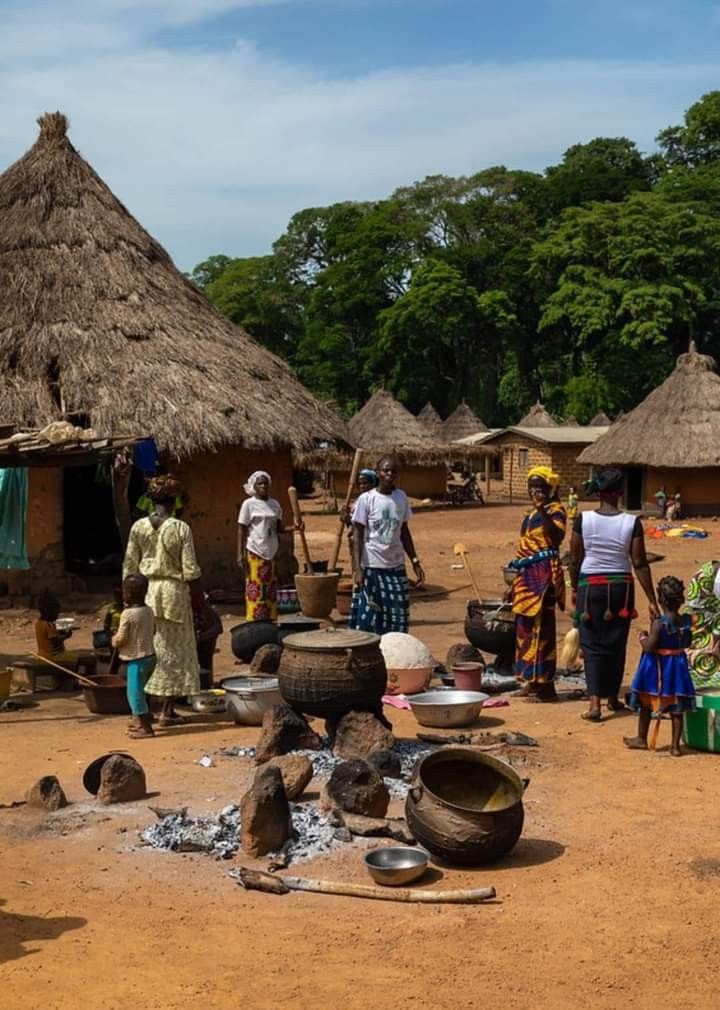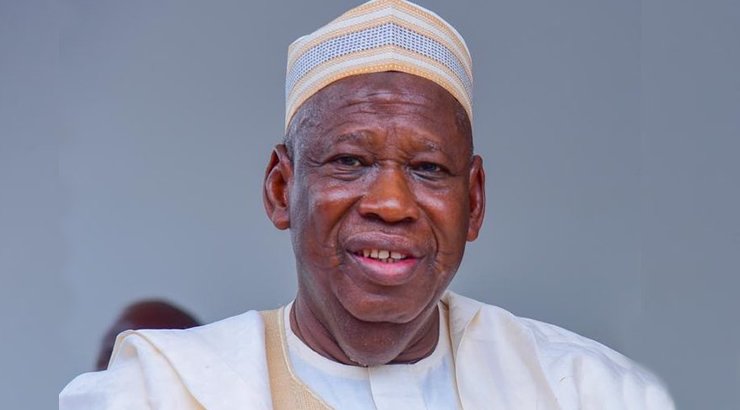By Evans Ufeli Esq.
Ofuko was born into darkness in a village in Ikilibi. His mother had gone to the farm where she worked all day while pregnant, almost due for delivery.
She walked laboriously, yawning and staggering as she strutted through her farmland.
The sun had gone through its circle for the day. Now it rested toward the riverbank with its yellow orb half-sank into Adofi.
Labour soon came. In her tiredness she rode her bicycle briskly, her face grimmed with pain; the wrinkles on her face, a vintage of time and experience, relished.
She rode like one running out of danger, until she fell and hurt herself at Ishi Ogbe. She yelled, struggling in pain on the ground.
Now she was lifeless.
She bled profusely. There was no immediate help in sight, as nightfall had set in and the day was weary. She held the grass by the footpath and called for help.
The village ran to her. She was laid on a motorbike and rushed to the health centre, which was under lock and key. Her sister, Onyeka, called for help, so the village took her to Nnem Ogo, the old woman who took delivery through traditional means, using kernel oil and mixed herbs.
In the mud hut, Nnem asked for a lantern and told the villagers to step outside while the patient lay half-dead.
The hut had a brown clay pot with a rusted plate covering it. On top was a light-green akanaka; the walls were red and smelt of earth.
Right there on the mat, the child leaped. She pushed. Her head lay on the wooden chair, her hands were weak, and her breath ceased intermittently. Her body temperature had risen, and her eyes dimmed.
"She'll push soon," Nnem said as she washed her hands to take the delivery. Her mouth was brown; her tongue was permanently stained by tobacco.

The lantern began to dim; there was no more kerosene. Soon darkness filled the room. The windows were opened and mosquitoes invaded the space. Mosquitoes buzzed by her ears, and she regained consciousness. She groaned in pain and drew strength from the ground.
The lantern went out altogether, and for a long, breathless moment there was only the smell of earth and the low susurration of the river outside. Then, against the blanket of night, a thin sound tore the silence - a raw, stubborn cry like a reed snapping free of mud.
Nnem, fingers brown with kernel oil and eyes like old coins, fumbled for the rusted plate and turned the clay pot. Her hands were sure. Onyeka bent over the mother, wet with sweat and blood, and with a final heave the child slid into the world, slick and purple and furious.
They say Ofuko was born with the night in his mouth. He opened his eyes before the lantern could be refilled and saw the darkness naming itself: the shadow under the eaves, the black of the river, the small, hungry night-birds that peered through the window.
He did not cry like other babies. He first laughed, a short, sharp sound that made Nnem step back and cross herself. The old woman's tobacco-stained tongue tasted the child’s breath and whispered, “This one belongs to the road and the river both.”
His mother did not live to teach him the names of things. She drifted like a distant moon and left Ofuko to Onyeka and the makeshift kinship of the village.
They washed him in warm water, rubbed him with kernel oil, and dressed him in shirts that smelled of smoke. In the weeks that followed, when the power from the town failed and the village sank into pitch, it was Ofuko who, even as a child, would sit where the black was thickest and look into it as others squinted away. Night had no terrors for him; it told him stories.
People thought the ways he listened were madness. He talked to things no one else could hear - the river’s slow letters, the ironpost’s complaints, the whisper of footsteps that belonged to no one living.
He would wake in the small hours and walk the footpaths with a lantern borrowed from a neighbour, finding loose nails, stolen chickens, the small betrayals people left in the dark. When traders arrived with boxes of batteries and little solar bulbs, Ofuko learned their tricks and kept them like charms.
He learned to tend the lanterns, to solder broken wires over an upturned calabash, to coax a dawn out of a street lamp that had long been mute.
As he grew, so did the darkness he opposed. Not the night itself, but the darkness that dressed as men: chiefs who traded favors for silence, priests who demanded secrets in return for blessings, men who lit no lamps at markets so their deals could be done unseen. They fed on blackouts and on fear, on the belief that nothing seen can be judged.
They called him mad when he named them in public, when he lifted the lantern and showed the ledger-book, the blood on a palm, the chained animals. He would stand at the crossroads and speak like a man half-contained by thunder, and the people listened because his voice cut through the long, slow night they had grown used to.
He did not take power with a spear. Ofuko gathered light. He taught women to fix wires and men to plant lamps on the verandas. He coaxed the market mothers into a grand, laughing rebellion of bulbs and mirrors: they set up a chain of oil-lamps from the river to the council hall and kept them burning.
He sat on the ogo’s threshold and told the truth about stolen grain and vanished medicines, and slowly, like fog lifting off Adofi at the touch of sun, the things hidden in shadow were revealed.
The leaders who had prospered in darkness found their secrets lined up before the whole town. Accusation after accusation, name after name, their comfort removed by the very light they had refused to tolerate. Trials - some messy, some swift - followed.
Some left the region in disgrace.
Others were taken by law, their dealings unearthed. The old order that had fed on hush and night unstitched itself under the strain of bright-eyed accusation.
They still called him mad. He accepted the name like an old coat. “Madness,” he would say, “is nothing but the courage to see what everyone else pretends not to see.” In time he did more than expose; he healed.
He set to work on the town’s dark corners - fixing lamps at the sickbay, running lessons for children about wires and wattage, building a small workshop beneath the same clay roof where Nnem once cleared a berth with herb and oil. The river’s sighs became softer as markets glowed and the council hall had to sit in the sun and answer.
Where Ofuko walked, darkness thinned. Where he left a lantern, it stayed lit; where he spoke, the truth took root. The madman Ndokwa raised had been born in a night that swallowed his mother, and from that night he learned to turn the useless, fated dark into a thing that could be counted, mended, and cast out.
The village that once sheltered its misdeeds now kept its lamps lit against the pull of old, comfortable shadows. And when, in the evenings, children run about with cheap bulbs and laugh, they tell the story of a boy who did not fear the night because he had been born inside it and learned to read its language - a boy who would not let men hide there any longer.
To be continued…




